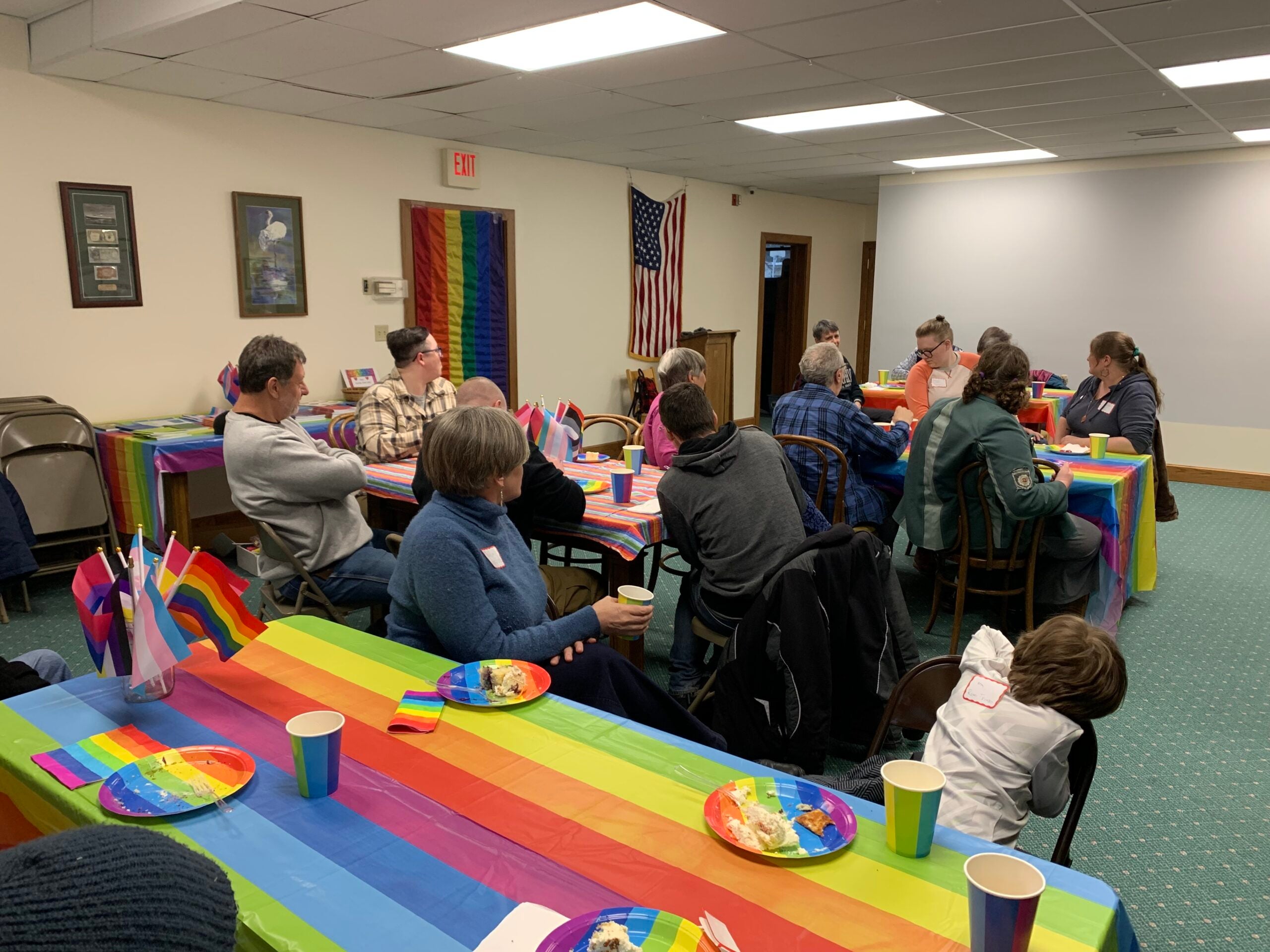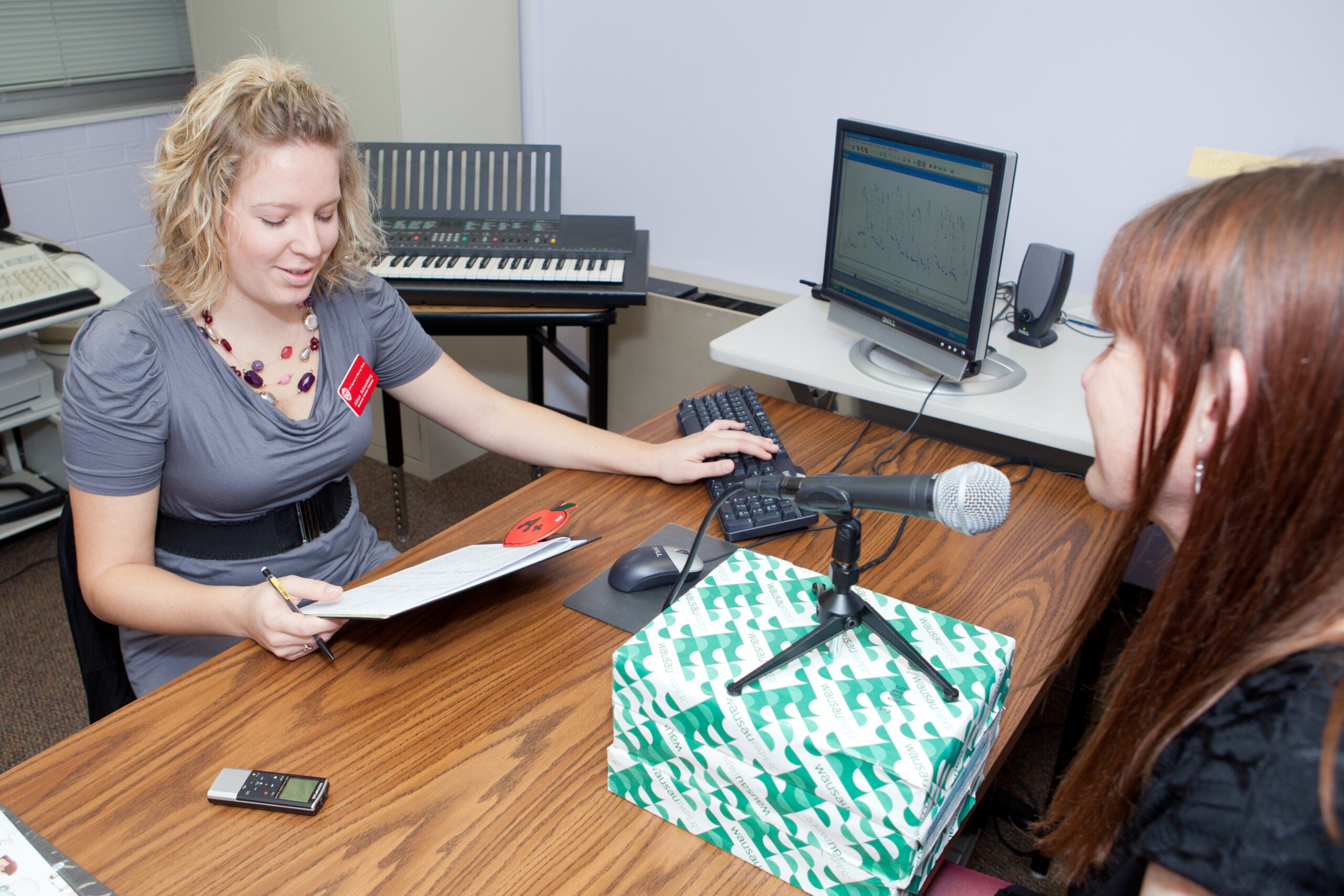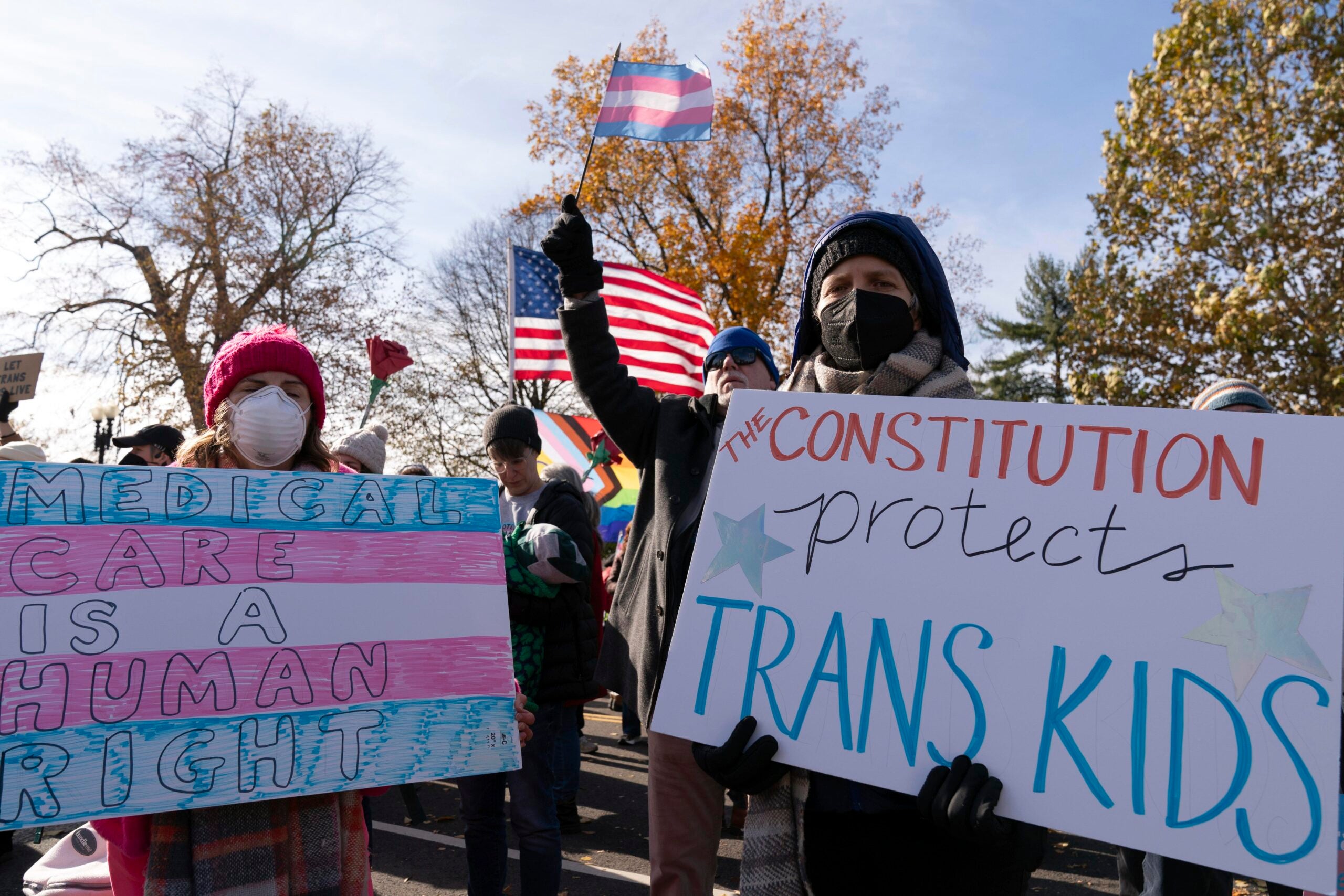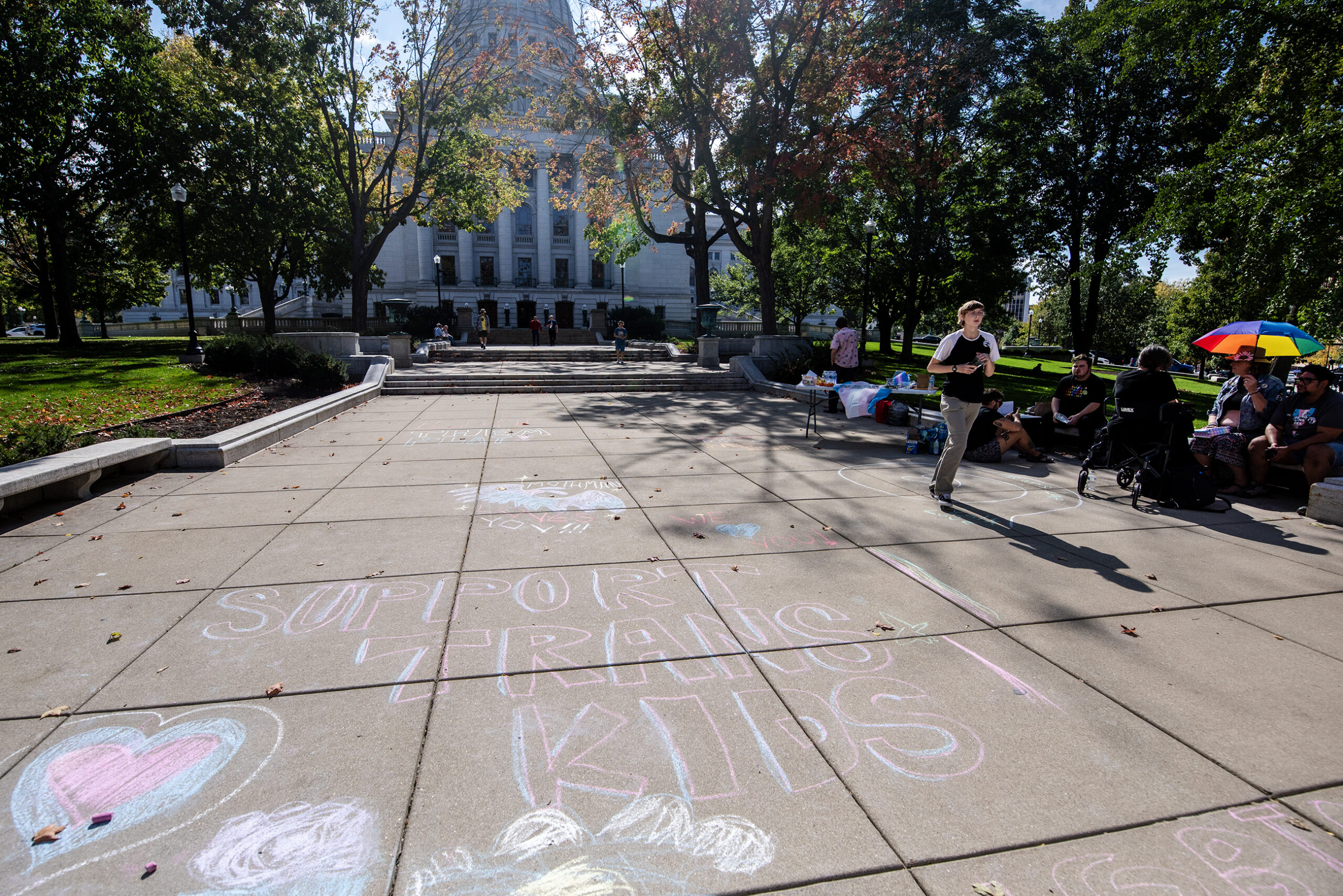At a time when gender-affirming care in Wisconsin is under fire, providers at a speech clinic are helping transgender clients find their voice.
“Our voice is [an] external representation of us,” Maia Braden, a speech-language pathologist at the UW Speech and Hearing Clinic told WPR’s “Wisconsin Today.” “Anytime our voice doesn’t match who we feel we are, it can be extremely distressing.”
Braden and her colleagues at the clinic help transgender people develop a voice that matches their gender identity, a service the clinic has been providing since at least the 1990s.
News with a little more humanity
WPR’s “Wisconsin Today” newsletter keeps you connected to the state you love without feeling overwhelmed. No paywall. No agenda. No corporate filter.
Expressing one’s gender through voice isn’t just about how high or low it sounds. Clinicians may help a client find their voice by experimenting with pitch, resonance, timbre or vocal quality. But it can also involve articulation, pronunciation, language, or even gestures and body language.
“It really is individualized to each client that we work with,” Braden said.
Many people choose to experiment with their voice on their own, or by using online videos and other resources. But Braden said it’s easy to feel a bit lost without help.
“Working with somebody one-on-one [allows you] to really tailor it to your goals and your voice, to make sure that you’re doing it in a way that is not just sounding the way you want it to, but [also] feeling good and being healthy, sustainable and not too tiring,” Braden said.
Braden said that gender-affirming voice therapy can also help transgender people avoid harassment and violence.
“There are actual safety concerns of having a voice that doesn’t match you,” Braden said.
Accessing health and safety
Twelve bills that target transgender rights are moving through the state Legislature, including targeting gender-affirming care for transgender youth. At the federal level, President Donald Trump has signed executive orders affecting the lives of transgender people.
In March, the U.S. Veterans Administration discontinued all gender-affirming care services to conform with one of Trump’s executive orders. That includes gender-affirming voice and communication training.
The American Speech-Language-Hearing Association opposes government restrictions to gender-affirming care and clinicians’ ability to provide that care.
Braden said that, at the moment, her clinical work isn’t in danger of being halted. But she hears concern in her clients’ voices.
“People are feeling like they’re under attack and worried about whether those services are still going to be there,” Braden said.
Growing restrictions to care
Gender-affirming voice therapy isn’t accessible for many people. It can be expensive, and it’s not consistently covered by insurance. For those who can’t afford one-on-one therapy, the UW Speech and Hearing Clinic hosts free gender-affirming voice and communication workshops for students and community members during the fall and spring semesters.
Ricardo Galaviz is associate director at the Milwaukee LGBT Community Center. They told “Wisconsin Today” that, among the community members the center serves, voice therapy is not as common as other forms of care. Many are not able to afford it.
“I see more people trying to go for the most accessible types of therapies,” Galaviz said.
But many forms of gender-affirming care — like hormone therapy — are facing new restrictions by state and federal governments. One recent executive order from the Trump administration restricts gender-affirming medical care to people over the age of 19. Elise Kehle, president of the Washburn-Chequamegon Bay chapter of PFLAG, worries that the age at which people can access gender-affirming medical care will creep up.
“They’re trying to make people wait longer and longer before being able to transition, which means that later in life, it’ll be a lot harder for us to be seen as anything other than trans,” Kehle told “Wisconsin Today.” “It’s not something we should have to be ashamed of, but the ability to pass can mean the difference between life and death.”

According to a 2021 study from the Williams Institute at UCLA School of Law, transgender people are over four times more likely than cisgender people to be victims of violent crime.
And Galaviz has not seen much improvement. They said that, even though gender-affirming care hasn’t officially been restricted in Wisconsin, they have seen the social climate change for the worse.
“What we are seeing a lot more is an uptick in prejudices,” Galaviz said.
More information and resources on transgender and nonbinary health in Wisconsin are available here on the Wisconsin Department of Health Services website.






